Alejandro Davidovich Fokina may have won most of the style points in his second-round match with Félix Auger-Aliassime on Thursday, but it was the cool Canadian who came through on the scoreboard – riding a 7-6(4), 6-7(4), 7-6(5), 7-6(4) rollercoaster to victory in four hours and 19 minutes.
Auger-Aliassime committed 83 unforced errors to 51 for his opponent but had an uncanny knack for bringing down the hammer – his serve – when it mattered most. He hit 28 aces (and numerous service winners that don’t figure in the box score) to six for Davidovich Fokina. That allowed him to off-set the 39 to 26 overall winners count that the game Spaniard had over him in baseline rallies.
While Auger-Aliassime maintained a controlled demeanour during the match, Davidovich wore his heart on his sleeve as he hit dazzling drop shots, bounced around like a boxer when returning serve and even contributed to the folklore of the match by losing a point in the fourth set when the dampener came off his racquet and touched the net as he was following through on a forehand volley.
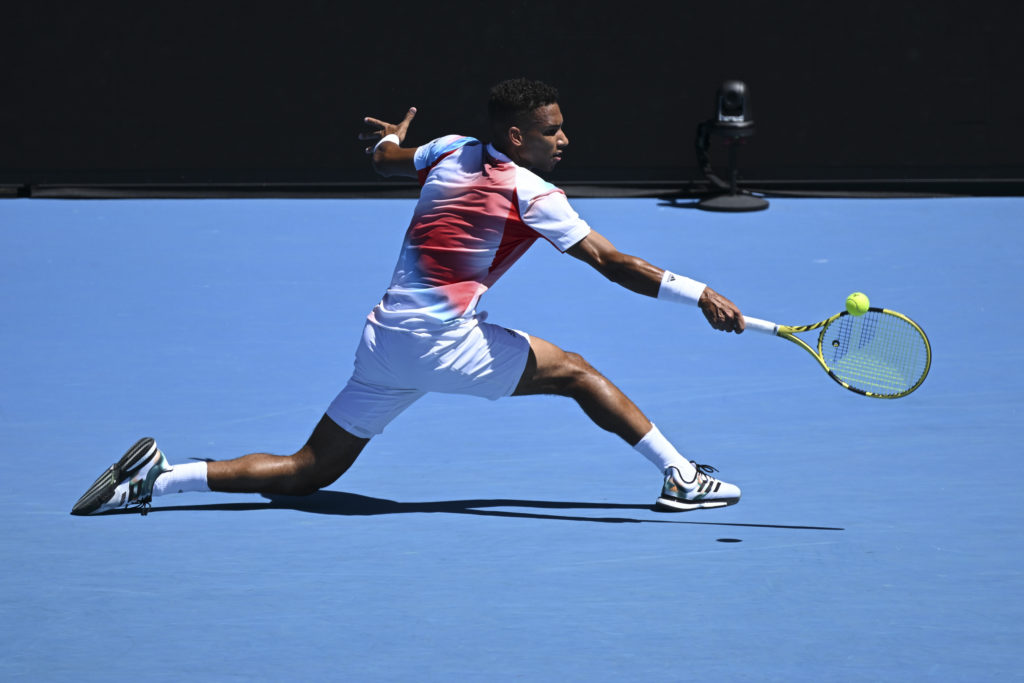
The four-tiebreak score line indicated just how close the match was and, in the final analysis, the Auger-Aliassime serve was key to the end result.
Davidovich Fokina had his moments – he was 2/9 in break points converted to 2/5 for Auger-Aliassime and led 4-2 in the opening set and 3-1 in the fourth set – the only ones that had service breaks.
A golden opportunity came in the fourth-set tiebreak when he led 3-2 with Auger-Aliassime serving. A crucial mini-break beckoned when he had a chance to unload on a forehand in a favourable position but he botched it into the net. Auger-Aliassime then held to 4-3 and dashed Davidovich Fokina’s remaining hopes when he won the next two points to 6-3 – triple-match point – on a forcing forehand and then a forehand unforced error by the Spaniard. Two points later Auger-Aliassime finished with a flourish – lunging to put away a beautifully-angled forehand, cross-court volley.
When the margin of victory is so minuscule, it’s not unreasonable to speculate that Auger-Aliassime could still have slight psychological advantage dating back to a pair of previous meetings before both men were established pros on the main tour.
He defeated Davidovich Fokina on each occasion – 6-4, 7-6(6) on his way to the US Open junior title in 2016 and 7-5, 7-5 at a 2018 ATP Challenger event in Alicante, Spain, when they were 17 and 18 years old respectively. Davidovich Fokina, currently ranked No. 50, was also a junior Grand Slam titlist – at Wimbledon in 2017.
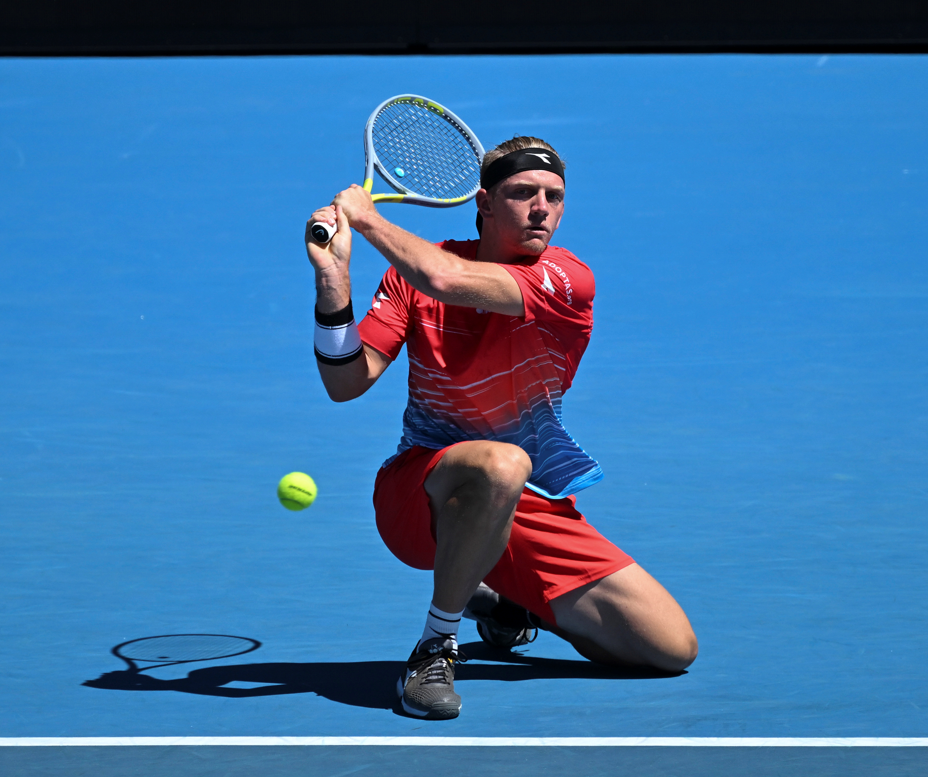
“A great day, a long day, more than four hours on the court,” Auger-Aliassime said about Thursday’s match, “so definitely getting plenty of tennis so far this week.”
His opening-round, five-set victory over Emil Ruusuvuori on Tuesday lasted three hours and 40 minutes.
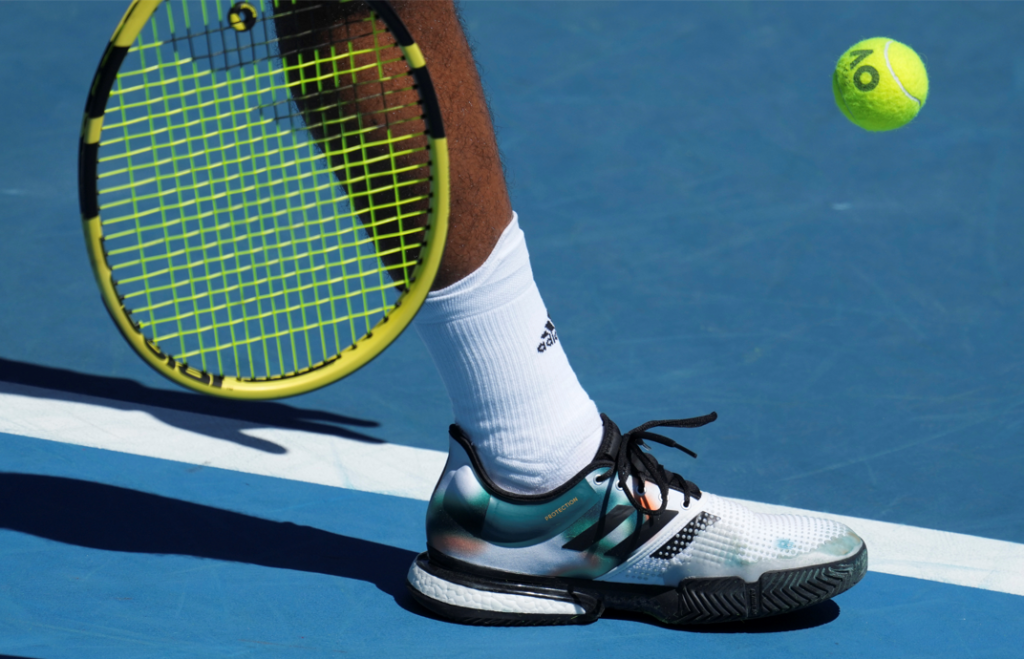
About the four hours plus on Thursday, Auger-Aliassime summed up, “it was a crazy match. I mean, credit to Alejandro. I know him from juniors way back and he’s a great guy, tough opponent.
“He showed up with a great level today, stayed focused, stayed present during the match. So, I’m just happy that it fell on my side – playing four tiebreaks in a row – and I was able to win three out of four.
“I served tremendously from the second or third set and that helped not to lose too much energy. It was probably one of the most epic matches I’ve played.”
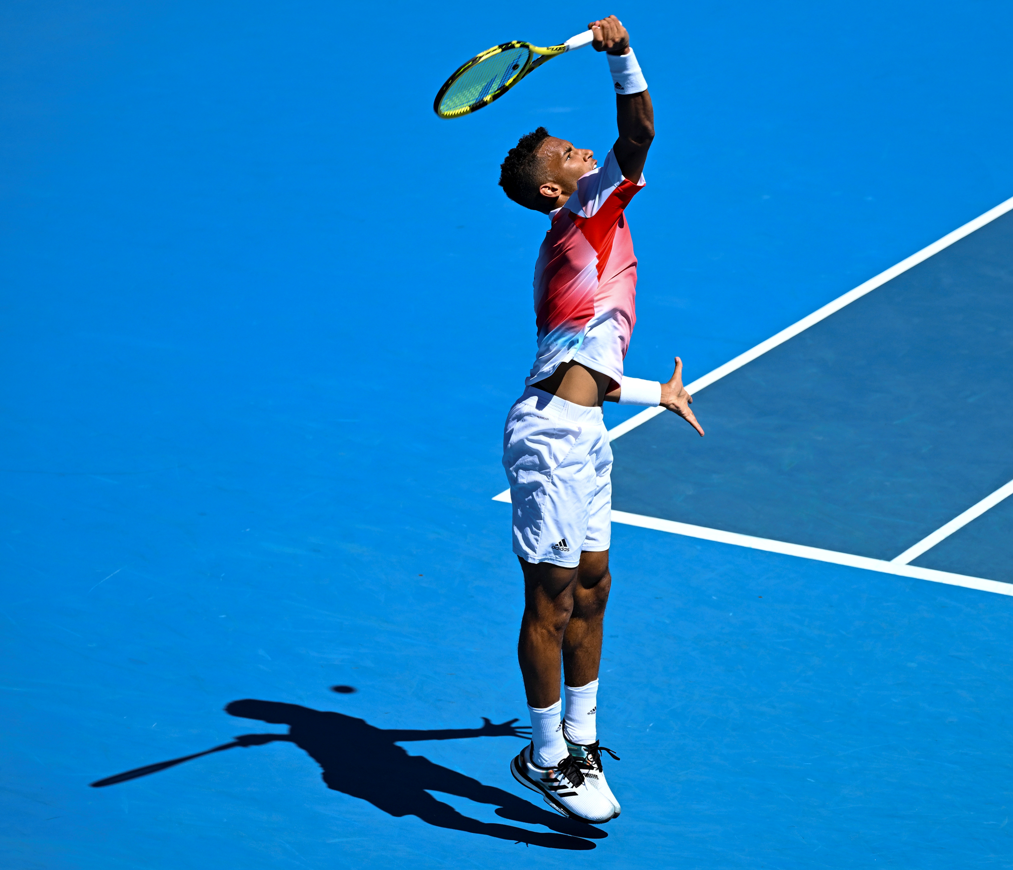
If Auger-Aliassime is now to equal his result at Melbourne Park a year ago and reach the round-of-16, he will have to beat No. 24-ranked Dan Evans on Saturday. The No. 24 seed won their only previous meeting 6-2, 6-3 in the final Melbourne 2 ATP Tour event before last year’s Aussie Open. On Thursday, he advanced by walkover when Arthur Rinderknech of France withdrew with a wrist injury. He is now into the third round of a Grand Slam event for the ninth time in 21 appearances.
Evans spent zero hours on the competition court Thursday while Auger-Aliassime battled a gritty opponent and the heat of KIA Arena. There will be theories both ways about their situations – will Evans be out of rhythm having not played since his opening-round, straight-sets win over David Goffin on Tuesday? Or will Auger-Aliassime pay a price for the grueling encounter with Davidovich Fokina? “It was a long match,” Auger-Aliassime said in a TSN interview looking ahead to facing the 31-year-old Briton, “but I’ll be okay. My body’s feeling good. It’s a Grand Slam so you’re ready to leave it all out there.”
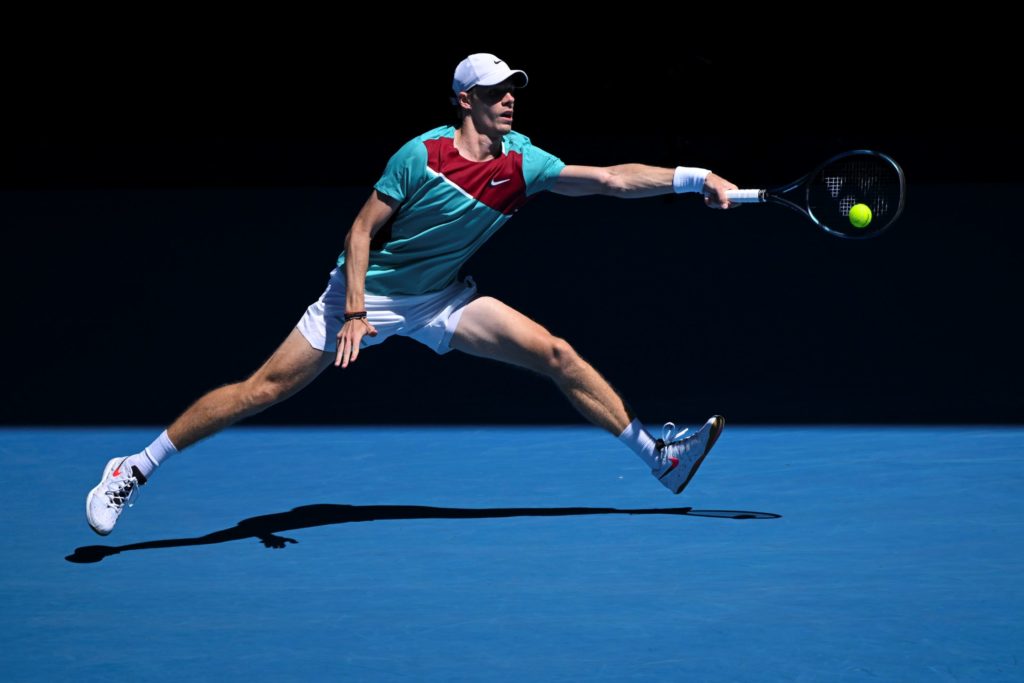
On Friday in Margaret Court Arena after two women’s matches starting at 11 a.m. (7 p.m. ET Thursday in Canada), No. 14 seed Denis Shapovalov takes on No. 23 Reilly Opelka, runner-up at the 2021 National Bank Open in Toronto, for a spot in the round-of-16. The serve and the return of serve are destined to be huge factors in the match-up.
In hard-court matches in 2021, Shapovalov had a 209 aces and 152 double faults compared with 544 aces and 80 double faults for Opelka. Shapovalov saved 67 per cent of the break points he faced and converted on 39 per cent of his break chances while Opelka was 68 per cent on break points saved and 30 per cent on converting break points.
Opelka won 89 per cent of his service games to 84 per cent for Shapovalov but there was a glaring difference in the percentage of return games won – Shapovalov was 19 per cent while Opelka was a mere eight per cent.
Those are all only numbers but they help give context to what promises to be a chess match of quick-strike tennis.
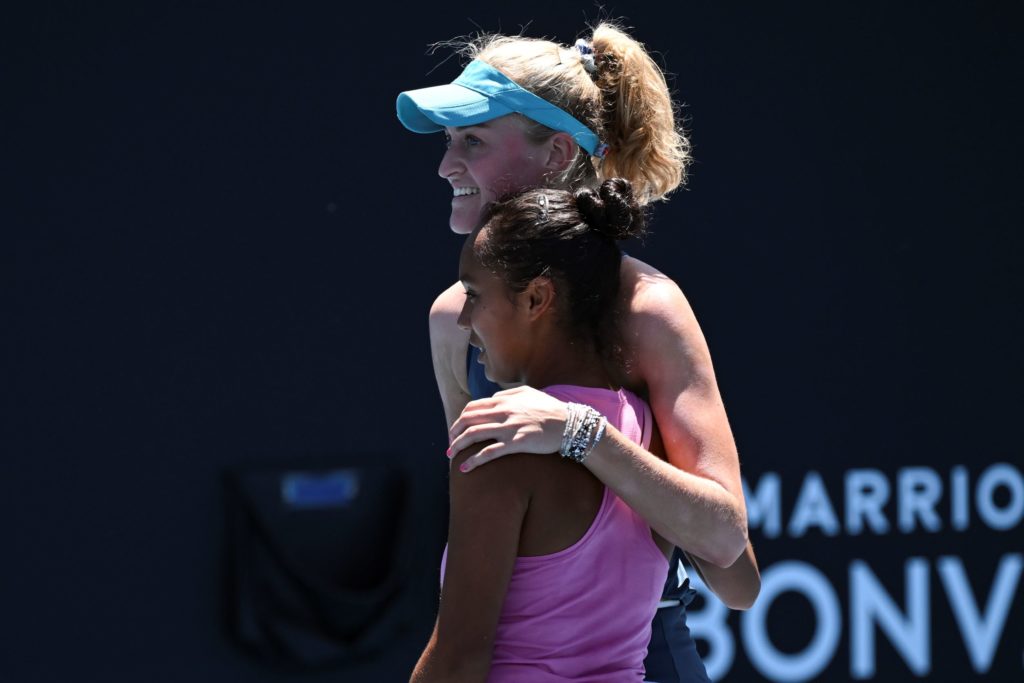
Leylah Annie Fernandez and Erin Routliffe may have lost in the first round of the doubles on Wednesday, but they still looked like they remained good mates (to use Aussie parlance) when it was all over.
Feature Photo: Martin Sidorjak






